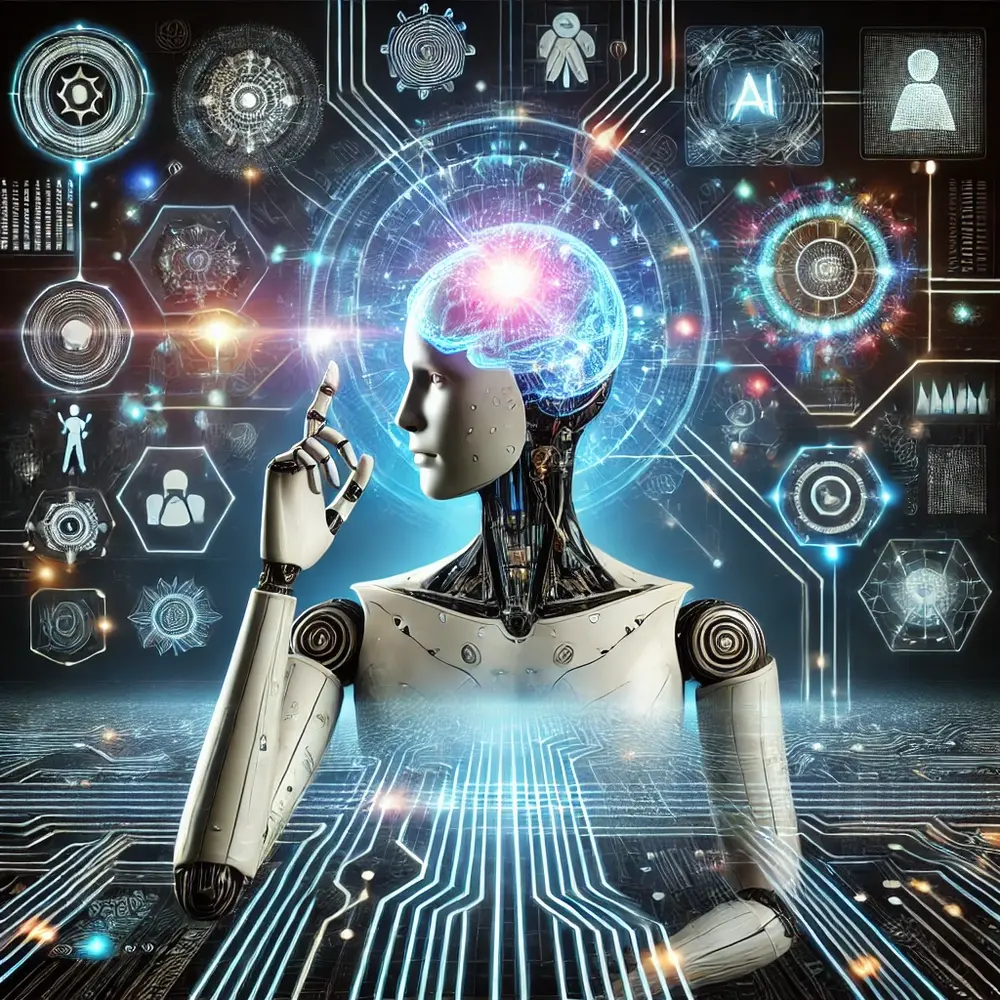In recent years, artificial intelligence (AI) technology has rapidly permeated our lives. Initially used only in limited fields, this technology has gradually expanded its influence and transformed many aspects of our daily existence. AI affects not only work and personal life but also politics and global relations. It has even reached a level where it could replace humans and cause profound changes in societies. This article examines the changes AI has brought to our lives and its impact on society, politics, and global peace.
-
AI Becoming More Human-Like
One of the most striking developments in AI is its ability to mimic human behavior and think like a person. Previously limited to simple operations, this technology now needs to understand human emotions, reactions, and social connections. This has found broad applications not only in the business world but also in creative fields. For example, AI-generated written and visual works have become part of our daily lives. This progress has led to deeper integration of AI into our lives by analyzing human decision-making and thinking skills. However, this may weaken humans’ ability to self-manage and make independent decisions. -
Intervention in Politics: The Power of AI
AI influences not only work and personal life but also politics. Its power is widely used in election analysis, directing political propaganda, and governance. Political leaders analyze voter behavior and use AI to strengthen their campaigns. Using AI to predict election outcomes and influence voter behavior can sometimes threaten the fundamental principles of democracy. This may lead to increased interference in politics and undermine people’s independence. Consequently, individuals may base their decisions on AI’s suggestions, limiting their autonomy. -
Rebellion and Social Tensions: Public Protests
The introduction of AI into our lives causes social and political tensions. As people feel less free to manage their lives and jobs, this can lead to social protests and uprisings. Particularly, the automation of jobs and resulting unemployment due to AI’s use in the labor market can cause significant dissatisfaction. Concerns about AI replacing humans and violating human rights contribute to this unrest. Such situations may lead to revolutions and social conflicts. People may start resisting AI’s dominance over their lives, resulting in structural changes in society. -
International Threats and Risks to Global Peace
AI’s influence extends beyond local levels to international relations. States can use AI to interfere with other countries, causing global tensions. For example, cyberattacks and military interventions carried out with AI may lead to conflicts between nations. This threatens international relations and global peace. Countries possessing advanced AI technology might use it as a weapon to gain political and economic advantages, potentially triggering global wars and escalating geopolitical tensions.
Conclusion
Artificial intelligence has numerous positive and negative impacts on our lives and societies. Its ability to mimic humans, intervene in politics, and cause global tensions raises significant questions about our future. How AI will be managed will determine the extent to which society and politics can develop freely. Proper human interaction with this technology and the protection of rights will help prevent potential difficulties that may arise in the future.

